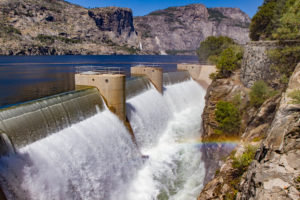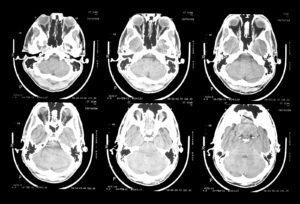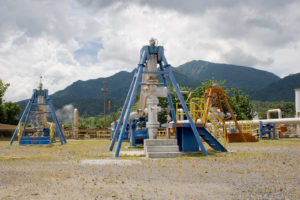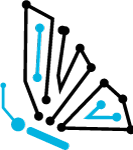Power and Nuclear Engineering

TRYENGINEERING CAREER PATHWAYS
Power and Nuclear Engineering
Nuclear engineers research and develop the processes, instruments, and systems used to derive benefits from nuclear energy and radiation. They would work on designing, developing and operating nuclear plants to generate power. Some specialize in the development of nuclear power sources for naval vessels or spacecraft; others focus on industrial and medical uses for radioactive materials — for example, in equipment used to diagnose and treat medical problems. They will work with electrical and mechanical engineers, along with other experts in their work.
But power comes from many sources, and electrical and mechanical engineers may specialize in developing or optimizing power options via other renewable sources such as wind energy, solar, geothermal, and traditional methods such and coal and gas.
What makes it unique?
Power is used by all countries and the need to increase efficiency and reduce costs is an ongoing effort which is addressed by engineers working across all power sources. Innovation is ongoing in the nuclear and power engineering field.
 Degree Connections
Degree Connections
The following are examples of some accredited degrees leading to a career in nuclear and power engineering:
- Nuclear Engineering
- Power Engineering
- Energy Engineering
- Mechanical Engineering
- Engineering Physics
- Electrical Engineering
- Electrical Engineering Technology
Search our global database of accredited engineering programs.
Want to learn more?
Click on the blue tabs to explore the field in more detail and learn about preparation and employment, the green tabs to be inspired by people working in power engineering and how they impact the world, and the orange tabs for ideas on how to learn more and you can get involved with activities, camps, and competitions!
Explore

All engineers focused on working on power applications will typically work in offices. But their work setting is impacted by the industry in which they are employed. For example, those employed in classic power generation and supply work in power plants. Those working on projects to improve wind power, might be working at a research facility or interacting with clients looking to place wind towers offshore – so they may work partially onboard a ship.
An average work week will be 40 hours in this field, with little extra time needed unless there is a deadline or new product or service launch.
Some of the tasks they might work on include:
- Developing nuclear power sources for naval vessels or spacecraft.
- Finding industrial and medical uses for radioactive materials — for example, in equipment used to diagnose and treat medical problems.
- Designing nuclear equipment, such as reactor cores, radiation shielding, or associated instrumentation to help deliver power to homes and businesses.
- Performing special experiments to test for various methods of using nuclear material.
- Monitoring nuclear facility operations to identify design, construction, or operation practices that violate safety laws and regulations.
- Examining nuclear accidents and gathering data to design preventative measures
Nuclear Power:

A nuclear power plant is a thermal power station in which the heat source is a nuclear reactor. Heat is used to generate steam that drives a steam turbine connected to a generator that produces electricity. A nuclear reactor is a device used to initiate and control a self-sustained nuclear chain reaction. Nuclear reactors are used at nuclear power plants for electricity generation and in nuclear marine propulsion.
As of 2018, the International Atomic Energy Agency reported there were 450 nuclear power reactors in operation in 30 countries. About 10% of the world’s electricity is generated by nuclear power. Nuclear power plants currently operate in 30 countries, with most located in Europe, North America, East Asia and South Asia. France has the largest share of electricity generated by nuclear power, as it obtains about 75% of its electricity from nuclear energy.
Nuclear engineers help develop the systems that safely control a nuclear fission, the process where atoms split and release energy. But to understand how this works, an understanding of nuclear fission and related physics is useful. The discovery of nuclear fission occurred in 1938 at what is today part of the Free University of Berlin, following over four decades of work on the science of radioactivity and the elaboration of new nuclear physics that described the components of atoms.
The World Nuclear Association offers a good explanation about the technology behind a nuclear power plant!
Find out more:
Most engineers that are focused on power and energy are employed by power generation companies or companies addressing research and distribution of power. Governments also employ nuclear and other engineers with power and energy experience. They will also find employment in other sectors, such as in medical equipment manufacturing, engineering and construction firms, transportation, national laboratories, research and healthcare facilities, and consulting firms. Nuclear engineers may also work in medical applications, focus on fission or fusion energy, and may be involved in radioactive waste management
The following is just a sample of some companies, in addition to government agencies, which employ engineers focused on nuclear, power, and energy:

For most engineering careers:
- a bachelor’s degree is required
- a master’s degree may be recommended for those specializing or interested in management
- students may also start with a related associate degree and then move on to a bachelor’s when they have settled on a degree path.
- many students are required to participate in a co-op program while at university to gain real world experience in their chosen field.
- education doesn’t really stop…engineers need to stay current as technology changes and materials and processes improve over time.
- many professional societies offer certificates and coursework to support continuing education for their members.
At the undergraduate level, examples of courses for nuclear engineering include physics, power generation and distribution, principles of medical imaging, fusion and plasma physics, nuclear reactor safety, and ethics. Power engineering is often a specialization of electrical engineering but students will complete overarching electrical engineering studies as part of this degree.
It is important to select an engineering degree that has been accredited to meet basic standards. Find out more and browse TryEngineering’s global database of accredited engineering and computing programs.
Be Inspired
One of the best ways to explore what it might be like to work in power, energy and nuclear engineering is to learn about people who contributed historically or are currently working in the field.
- The American Nuclear Society compiled a Nuclear Science and Technology Career Interviews with several professionals working in the field, offering insights into their daily work.
- IEEE provides interviews with many electrical engineers through their Meet an Engineer program, some of whom work in the power and energy sector. An example is Rebecca Steinman, a nuclear engineering consultant at Advent Engineering Services.
- Lisa Meitner – Austrian physicist who worked on radioactivity and nuclear physics; part of the team that discovered nuclear fission
- Maria Goeppert Mayer – worked on the Manhattan Project and later won the Nobel Prize in physics for her work in developing the theory of nuclear shell structure
- Enrico Fermi – achieved the first self-sustaining nuclear chain reaction
Explore more from the Center for Nuclear Science and Technology Information which provides a list of Pioneers in Nuclear Science!

Nuclear technology has positively impacted the diagnosis of medical issues, and also provided some therapies as well!
Diagnostic techniques in nuclear medicine use radiopharmaceuticals (or radiotracers) that emit gamma rays from within the body which are detected by medical equipment such as CAT scans. The images are sharper when using a radiotracer which results in more accurate diagnoses.
Nuclear-based medicine treatments are used to fight cancer. As an example, those with thyroid cancer are frequently treated with radioactive iodine. This is because the thyroid absorbs almost all the iodine in your body, so it can be targeted to destroy the thyroid cells. Radioactive iodine therapy helps people live longer if their thyroid cancer has spread to the neck or other body parts, and it is now standard practice in such cases.
Find out more:
Get Involved
Dig deeper into topics related to nuclear and power engineering that interest you!
Explore:
- Renewable Energy Research
- World Energy Consumption
- Energy.gov
- Nuclear Power in the World Today
- Nuclear Regulation & Regulators
- Careers in Wind Energy
- TryEngineering News Blog: (placeholder)
Watch:
- Power Engineering 101: Exploring a career in the subfield of electrical engineering
- Purdue University Nuclear Engineering
Try it Out:
- Play some games that involve nuclear engineering (placeholder):
- Try one of the TryEngineering lessons that focus on nuclear and power engineering:

Clubs, competitions, and camps are some of the best ways to explore a career path and put you r skills to the test in a friendly-competitive environment.
Clubs:
- Many schools have physics clubs or opportunities for students to get together and work on challenges that provide a good basis for any engineering degree.
Competitions:
- Department of Energy Collegiate Wind Power Competition challenges interdisciplinary teams of undergraduate students from a variety of programs to offer a unique solution to a complex wind energy project.
- The National Renewable Energy Laboratory sponsors several competitions including a Marine Energy Collegiate Competition, a Geothermal Design Challenge, and an Energy Solar Decathalon.
- The IEEE International Future Energy Challenge selects a different topic each year. For 2021 student will consider Smart, Efficient and Light Solar Microgrid Inverter systems.
Camps:
- TryEngineering Summer Institute, US: Attend the TryEngineering Summer Institute to further your core engineering skills.
- Michigan State University 4-H Renewable Energy Camp a five day program allows youth to explore ideas, research and careers in the field of energy.
- Many universities offer summer engineering experiences. Reach out to your local university’s engineering department to see what they offer.

Did you know you can explore power engineering in your community? The consumer counterpart to generating efficient power is for homes and businesses to conserve on power usage. Consider the energy efficiency of your home, school, or another local building:
- Do windows have shades, curtains, or blinds?
- Are windows double-paned?
- Is there weather stripping around doors and other openings?
- Is there a programmable thermostat to adjust temperature?
- Is there insulation in walls and attic?
- How efficient are the appliances that are used? Think about the hot water heater, stove, dishwasher, and clothes dryer.
- Are water pipes insulated?
- Are dishwashers and laundry run only with full loads?
- Are lights turned off when a room is empty?
- Are most lightbulbs energy efficient?
- Are solar panels available and in use?
Find out more:

Be sure to reach out to professional societies focused on nuclear or power engineering where you live. Not all will offer membership to pre-university students, but most offer groups for university students, and certainly offer online resources to help you explore the field.
Some examples of groups focusing on nuclear and power engineering:
Some resources on this page are provided or adapted from the US Bureau of Labor Statistics and the Career Cornerstone Center.





















